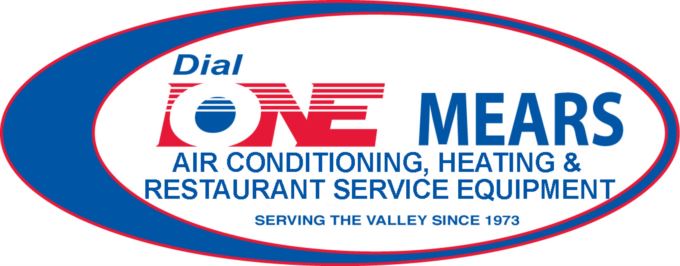
We can all benefit from saving money here and there. An easy way to do so is by identifying energy inefficiencies around your home. Upgrading your HVAC equipment or installing a smart thermostat, for example, gives you more control over your heating and cooling system, contributing to a more energy-efficient home and more affordable monthly energy bills.
Read on to learn more about 4 ways you can make energy-efficient home changes.
1. Use Smart Home Products Like a Smart Thermostat
If you still use an older thermostat and adjust it manually, try taking a step toward the future by installing a smart, or Wi-Fi, thermostat – which includes several features to make your home more energy efficient.
The feature homeowners appreciate the most is being able to access their smart thermostats from wherever through their smartphone or other smart device. For instance, if you forget to change your thermostat before going on vacation, you can easily take out your smartphone and make the necessary adjustment.
Like a programmable thermostat, a smart thermostat enables you to schedule your home’s temperature based on the time of day and day of the week so you’re not cooling or heating an empty house. Smart thermostats also have the ability to learn your temperature preferences over time and automatically make energy-efficient modifications. They also create monthly energy reports that show how much energy you've used and when so you can make modifications to reduce costs.
If you’re wondering how to obtain a free smart thermostat, ask your utility company to find out if there are any discounts or free smart thermostats available.
2. Routine HVAC Maintenance
Sadly, some homeowners often forget about having their heating and cooling systems maintained. While this may not seem important, ignoring maintenance can result in a number of issues, including inefficiency, breakdowns, and a shorter system lifespan.
When performing an HVAC maintenance service, the technician should evaluate your HVAC system, clean key components, and identify minor flaws before they produce bigger, more expensive repair issues. Tune ups keep HVAC systems functioning at optimal condition, which means less energy is used to heat and cool your home. This could also help with your energy bills, prolong the lifespan of HVAC equipment, and lead to fewer repairs.
We encourage two HVAC tune ups annually – one during the spring before summer and one in the fall before the arrival of winter weather.
3. Upgrading Your Old, Inefficient HVAC Equipment
Unfortunately, like all appliances, HVAC systems can't run forever and inevitably need to be replaced. Modern heaters and cooling systems are much more efficient than units produced just over 10 years ago. Thankfully, helpful HVAC companies like Dial One Mears Air Conditioning & Heating Inc can handle professional services like furnace installation in Phoenix.
Well-maintained furnaces and air conditioners can last around 15-20 years. If your system is within that timeframe, it might be a good idea to replace them ahead of time to minimize the risk of untimely equipment failure that can leave you cold and uncomfortable if it’s a cold winter night. If your equipment is around 15 years old and requires an expensive repair, it’s definitely time to replace it. Per the U.S. Department of Energy, getting a new HVAC system can sometimes save you between 20-40% on your monthly energy bills, so you’ll recover some of the costs of installing a new system.
A professional comfort technician can help you find the most energy efficient HVAC system available. As a general rule of thumb, try to find HVAC systems that are Energy Star certified, meaning the equipment satisfies rigid guidelines set forth by the U.S. Environmental Protection Agency. LENNOX HVAC systems are often some of the most efficient systems available, offering both high AFUE and SEER ratings. AFUE is used for heating systems and illustrates how well they convert fuel to heat. SEER, meanwhile, is used to calculate the efficiency of cooling systems.
Call a reputable HVAC provider like Dial One Mears Air Conditioning & Heating Inc for air conditioning installation in Phoenix.
4. Use High Efficiency Air Filters
The next time you’re searching for new HVAC filters, consider that not all air filters are created equally. Specific air filters are far more efficient than others, contributing to lower energy bills and a cleaner home environment.
The performance of HVAC air filters is illustrated by their Minimum Efficiency Reporting Value, or MERV rating. The MERV scale ranges from 1-20; the higher the number, the more effective the filters are. It’s worthwhile to note, though, that high-efficiency air filters can in fact impede airflow too much based on the type of HVAC system you installed. It’s important to review the owner’s manual before buying a filter to determine the right one for your system.
